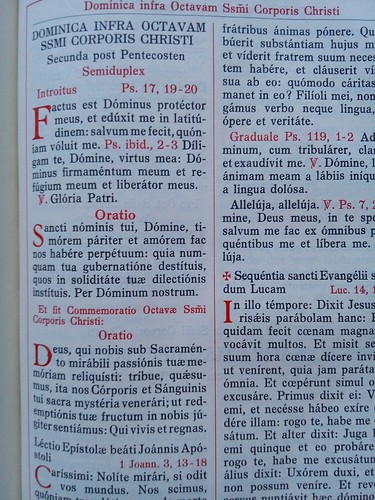Relax the rules a bit to make sense of feast days
The transfer of Holydays of Obligation to the nearest Sunday causes a lot of negative comment from Catholics who are strongly committed to practising their faith. While the transfer of the Ascension to Sunday does mean that the Sunday Mass congregation gets to participate in a Mass for the feast, it verges on the absurd to lose the temporal significance of the forty days after Easter.
The question of obligation is one of the arguments used for moving feasts to the Sunday. Medieval England had a genuine problem with the number of days off work necessitated by feast days, but nobody nowadays actually has a holiday on a weekday holyday, with the single exception of Christmas, and so, for many people, there is a genuine difficulty in getting to Mass on the feast days.
The structure of the traditional calendar from before the reforms of Pope Pius XII in Cum nostra hac aetate (1955) could offer a solution. Major feasts had an octave. The Mass for the Sunday within the Octave usually had the texts from the normal Sunday, but the collect for the feast itself was also included as an additional prayer, and the vestments were of the colour of the feast. It would have been perfectly proper (and probably expected) that the priest would preach on the Sacred Heart on the Sunday after the Sacred Heart and similarly for many other feasts.
This year, I heard of a couple of places where an "extraordinary solemnity" of the Sacred Heart was celebrated on the Sunday after the feast. I was intrigued that this was done not only at the Traditional Latin Mass, but also at Mass in the modern Roman rite. This seems to me a very good idea, though the notion of "extraordinary solemnity" does seem to be a deus ex machina to make sense of the Sunday celebration now that the octaves have been abolished.
One major problem, I think, is that of trying to stamp universal rubrical and especially calendrical rules over the whole Church with little leeway for local custom. As something of an antinomian in this regard, I'd love to see less legal positivism and greater leeway - though only for the preservation of what is sacred and great, and hallowed by tradition.

